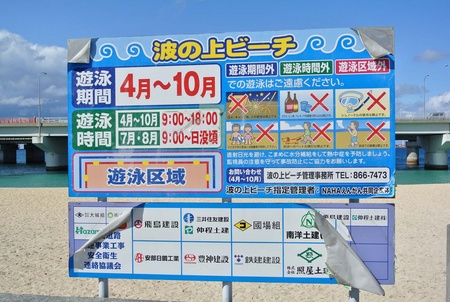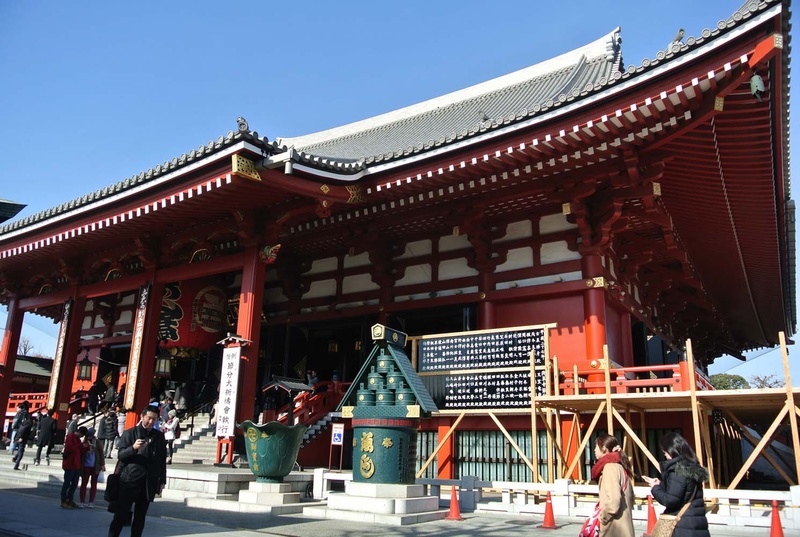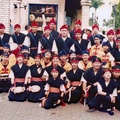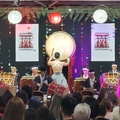Being a Brazilian of Japanese descent traveling around the world gave me some curious stories to tell. Being born and living in Brazil with Japanese traits is something that “camouflages” me in other countries and creates a lot of confusion in the minds of foreigners. Even more so because I study and know some languages.
On my first international trip, a travel and work exchange in the United States during college holidays, I met people from several different countries. As I was more shy, a characteristic of my roots, I didn't talk much to everyone who worked in the same place as me. Maybe that's why some didn't know that I'm Brazilian.
Chinese?
Then, in 2012, I went on a two-week tour of Europe with young people from different corners of the world. Many thought I was Chinese, including some Malay girls (from Malaysia, Asia) and even Chinese. The stories actually took place in Prague, in the Czech Republic, which seems to be a common destination for Chinese people. Once again I pretended to be Chinese in a souvenir shop. A salesperson asked me in English where I was from and I replied “Brazil”. He was surprised and excited, speaking a few words in Portuguese.
Where are you from?
The following year, I had a slightly different experience. In Spain, in Madrid, I met a Japanese girl who, when we were introduced, looked doubtful and curious at the same time to know my nationality. We got along very well and only spoke Spanish. So much so that once, on the subway, they looked at us with some strangeness.
But I caused real confusion at the school where I took classes in the language I used to communicate with my new friend, because a teacher and a classmate from Russia were intrigued. “How can a 'Japanese' be Brazilian and have a first name of Russian origin?” That would be what they had asked themselves. For them, perhaps it could be impossible, which for me is a big surprise. In Brazil this fact is very common, we are used to the diversity and mix of cultures. So as not to upset people's heads, I explained that my great-grandparents immigrated to Brazil from Japan.
I also went to Barcelona. There I stayed in a hostel and the room they chose for me seemed to have only Asian women. A South Korean woman even came to talk to me. I got the impression that she felt more comfortable approaching because I had almond-shaped eyes like her. But she didn't imagine that I was Brazilian, which bothered me, despite the fact that the mistake was frequent.
Not even Brazilians imagine
Quite curious is the fact that not even Brazilians themselves imagine that my country of origin is the same as theirs. In Argentina, a Brazilian was even relieved to discover that I am also Brazilian so he could speak Portuguese. A Uruguayan woman who worked at the reception of the hostel where I stayed also didn't know that Japanese people and their descendants existed in Brazil. So, once again, I told the story in summary form. The reaction was one of surprise and curiosity.
In the hostel in Chile I continued to take advantage of my “camouflage”. I even managed it, as I ended up overhearing a conversation between Brazilians who spoke loudly, probably because they thought no one around them would understand. I kept a low profile. Maybe I'm more Japanese than I consider myself or show myself to be, because neither this group nor the other Brazilians noticed. When there were only them at a breakfast, served at a shared table, I had to reveal my nationality. In general, non-descendant Brazilians are like this, they love meeting more Brazilians around the world to talk to and even have company to go out with.
First trip to Japan
On my first visit to my great-grandparents' country of origin, I noticed curious facts about the Japanese. After realizing that they speak very little English, I started using only my basic knowledge of nihongo , with the help of vocabulary dictionary and translation mobile apps. At first, I was more shy. But even so, a cashier at a restaurant in Osaka's Universal Studios park was the first to praise me, saying that I'm skilled ( jyozu ).
In Naha, Okinawa, where I traveled alone, I had conversations with women and ladies who worked in shops on Kokusai Dori , the city's tourist street. There, to increase my happiness, I was praised again. But this time, the Japanese women were curious about my nationality, where I studied the language and they didn't know about the existence of Japanese schools. So I discover that even the Japanese are unaware of the history of immigration to Brazil.

An unknown story
Through all these experiences, I discovered that the vast majority of foreigners do not know the history of Brazil, even less about Japanese immigration here. Furthermore, most “gringos” do not know that the country has the largest number of descendants outside of Japan. It has cities founded by Japanese, such as Bastos and Tietê, in the state of São Paulo. Which has a lot of traditional culture present in art and festivals. There are Japanese descendants who travel the world to get to know their family's homeland and culture and to see and experience other different cultures.
© 2015 Tatiana Maebuchi






